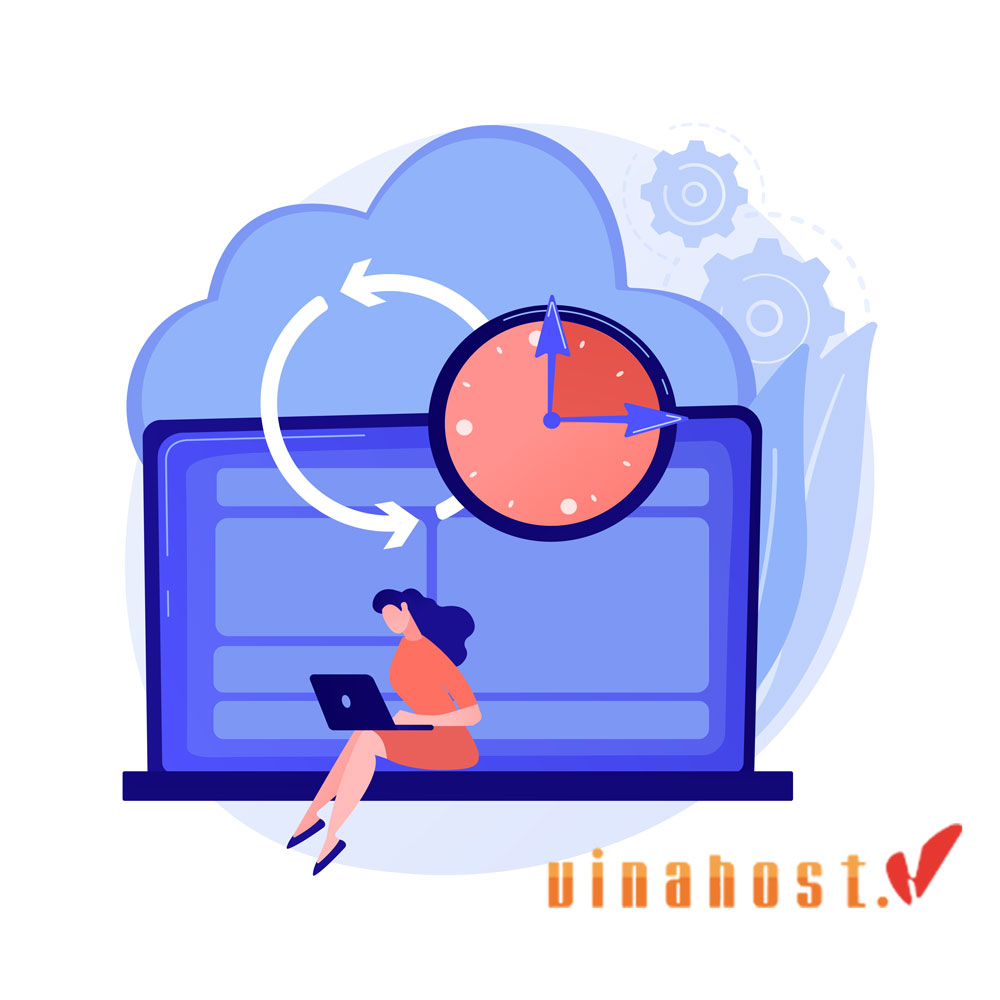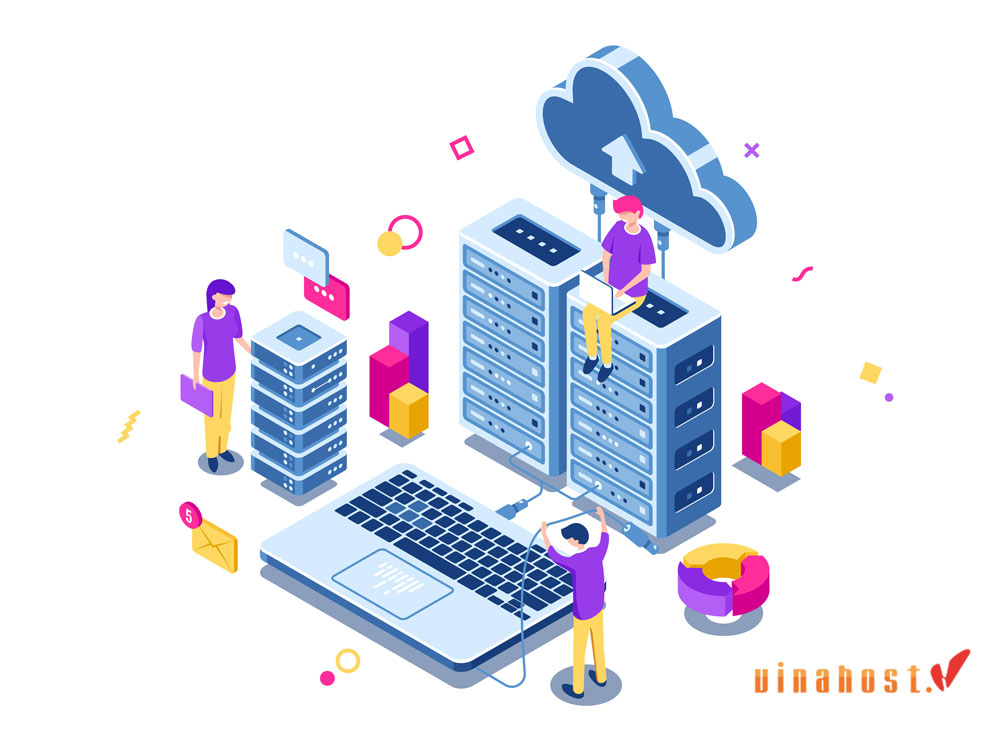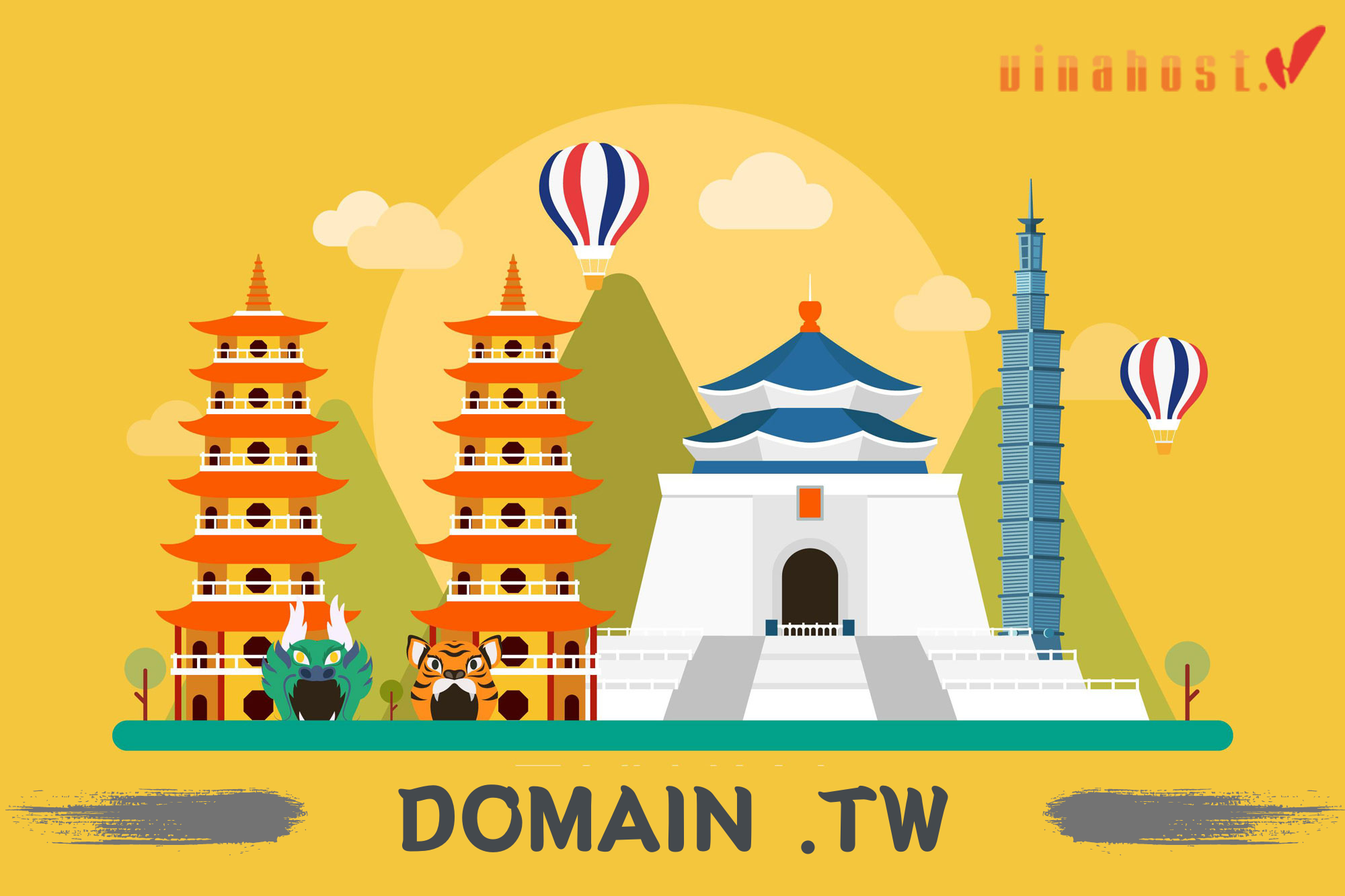A VDS provides a dedicated server environment within a virtualized infrastructure. This means you have exclusive access to the server’s resources, including CPU, RAM, and storage, without the need to manage the underlying hardware. It’s like having your own private server, but with the added benefits of scalability and cost-effectiveness. This article aims to provide a clear understanding of what a is Virtual Dedicated Server, how it works, and the advantages it offers over traditional shared hosting. Check out VinaHost‘s latest article now!
1. What is a Virtual Dedicated Server?
What is VDS? A Virtual Dedicated Server (VDS) is a type of virtual private server (VPS) that provides the benefits of a dedicated server while using virtualization technology to partition a physical server into multiple virtual servers. Each VDS operates independently and has its own dedicated resources, such as CPU, RAM, and storage.
This means you have exclusive access to the server’s resources, including CPU, RAM, and storage, without the need to manage the underlying hardware.
A Virtual Dedicated Server combines the benefits of dedicated resources and isolation with the cost efficiency and flexibility of virtualization technology.
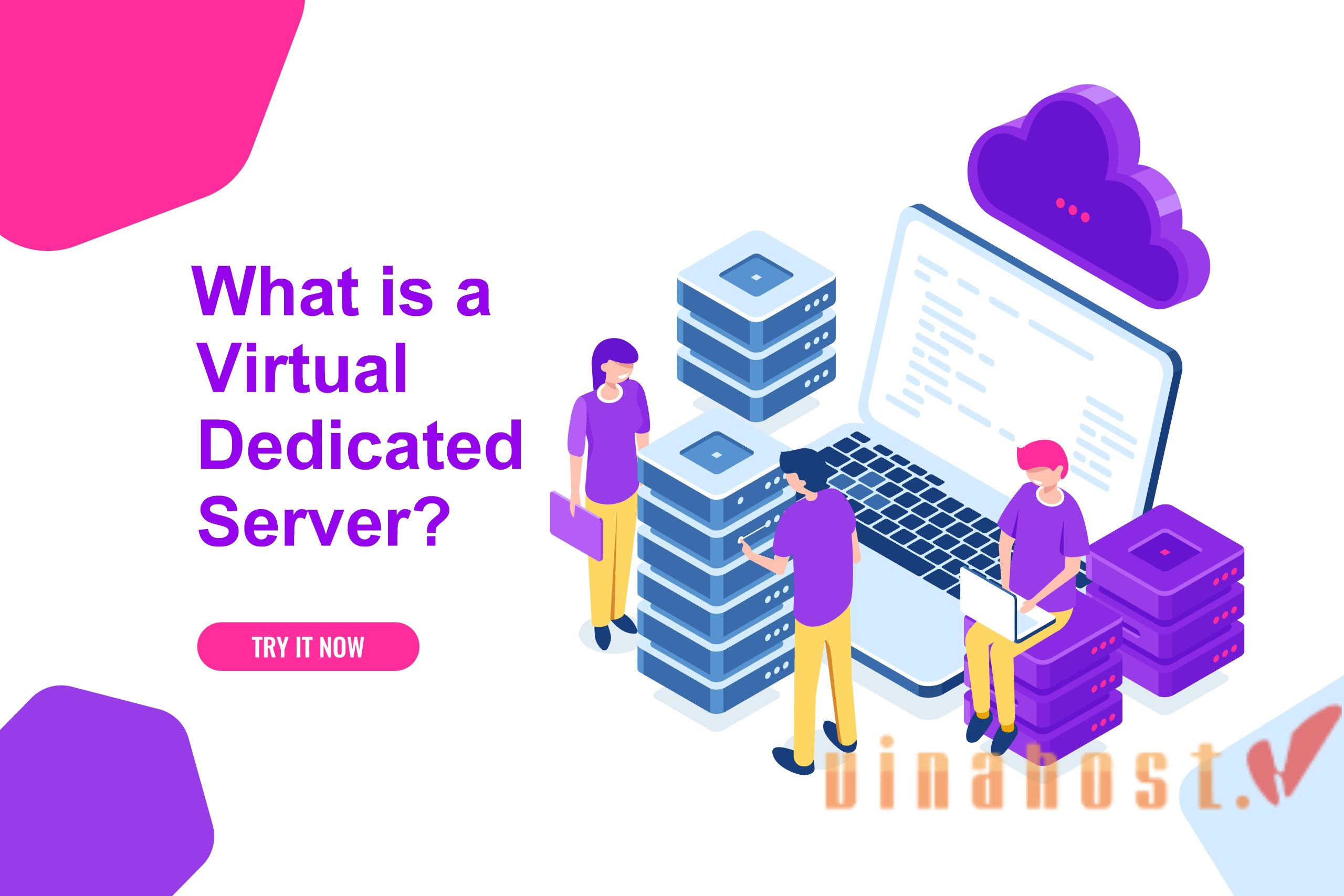
A VDS offers a range of features that make it a versatile and powerful hosting solution:
- Dedicated resources: You have exclusive access to the server’s resources, including CPU, RAM, and storage. There’s no competition for resources with other users, ensuring optimal performance.
- Root access: You have full administrative privileges over the server, allowing you to customize it to your specific needs. You can install any software or applications you require.
- Operating system choice: You can choose the operating system that best suits your applications and preferences. This gives you greater control over the server environment.
- Scalability: VDS virtual dedicated server can be easily scaled up or down to accommodate changing workloads. You only pay for the resources you need, making it a flexible and cost-efficient option.
- Security: Each VDS virtual dedicated server is isolated from others, reducing the risk of security breaches. You have more control over security measures, such as firewalls and intrusion detection systems.
- Reliability: Many VDS providers offer redundancy features to ensure high availability and minimize downtime. You can often access 24/7 technical support to address any issues promptly.
- Cost-efficiency: VDS virtual dedicated server is often more affordable than a physical dedicated server. You have a clear understanding of your monthly costs.
Also read: What is the difference between VPS and Dedicated Server
2. How Does a Virtual Dedicated Server Work?
Now that you understand what is virtual dedicated server, let’s delve into an important aspect: how it works!
VDS virtual dedicated server works by leveraging virtualization technology to partition a single physical server into multiple independent virtual servers:
Physical server: At the base, there is a physical server with significant computing resources (CPU, RAM, storage). This server is equipped to host multiple virtual environments.
Hypervisor: The physical server runs a hypervisor (or virtual machine monitor), which is software or hardware that creates and manages virtual machines. There are two main types of hypervisors:
- Type 1 (Bare-metal): Runs directly on the physical hardware and is more efficient. Examples include VMware ESXi and Microsoft Hyper-V.
- Type 2 (Hosted): Runs on top of a host operating system. Examples include VMware Workstation and Oracle VirtualBox.
Virtual Machines (VMs): The hypervisor divides the physical server into several virtual machines. Each VM operates with its own virtualized hardware resources, including virtual CPUs, memory, and storage.
Dedicated resources: Unlike a traditional VPS where resources are shared among various virtual servers, a VDS allocates dedicated resources to each VM. This means that the performance and resources assigned to your VDS are not influenced by other VDs on the same physical server.
Isolation: Each VDS virtual dedicated server is isolated from others, ensuring that activities on one VDS do not affect the
Customization: Users have complete control over their VDS, allowing them to install and configure software, manage security settings, and customize the environment as needed.
Management: VDS management is typically done through a control panel or a command-line interface, giving users access to configure and maintain their virtual server as if it were a physical dedicated server.
Scalability: Resources can be adjusted based on demand. If more CPU, RAM, or storage is needed, it can be added without significant downtime or reconfiguration.
Also read: What is NVMe VPS? | The Difference between NVMe VPS vs SSD VPS
3. The Benefits of a Virtual Dedicated Server
In essence, a VDS leverages the power of a physical server to create multiple virtual servers, each with its own dedicated resources and environment. This allows for efficient utilization of hardware and provides a flexible and scalable solution for various hosting needs.
Here’s a detailed look at the benefits of a VDS:
3.1. Control and Flexibility
- A VDS provides root or administrative access, allowing you to configure and customize the server environment according to your specific needs.
- You can install and manage software, adjust system settings, and modify configurations as required for your applications or website.
- Each VDS virtual dedicated server operates independently, ensuring that your customizations and settings do not conflict with other users on the same physical server.
3.2. Performance and Reliability
- Unlike traditional VPS hosting, a VDS allocates dedicated CPU, RAM, and storage resources, ensuring stable performance without interference from other virtual servers.
- With resources dedicated to your VDS, you experience more predictable performance, which is crucial for applications requiring high reliability and speed.
- The isolation of VDS environments means that issues in one VDS do not affect others, leading to enhanced stability and reliability.
3.3. Scalability
- You can easily scale resources like CPU, RAM, and storage based on your needs. This flexibility allows you to handle varying workloads and traffic demands effectively.
- As your application or business grows, you can upgrade your VDS to accommodate increased resource requirements without significant downtime or complex migrations.
- Many VDS providers offer options for on-demand scaling, enabling you to adjust resources in real-time to match current needs.
Also read: What is SSD VPS Hosting? | Everything You Need to Know
3.4. Cost-Effective
- VDS offers many of the benefits of a dedicated server but at a lower cost. You get dedicated resources and control without the expense of a full physical server.
- Many VDS providers use a pay-as-you-go model, allowing you to only pay for the resources you use. This can be more economical compared to fixed-cost dedicated servers.
- With a VDS, you avoid the capital costs associated with purchasing and maintaining physical hardware, making it a cost-effective solution for businesses and individuals.
A VDS provides the benefits of a dedicated server without the high upfront costs or maintenance overhead. It’s a popular choice for businesses and individuals who require a reliable, customizable, and scalable hosting solution.
4. Virtual Dedicated Server use cases

A VDS offers a versatile and powerful solution for various applications. Here are some common use cases:
4.1. E-commerce
- High traffic handling: E-commerce sites often experience fluctuating traffic, especially during sales or promotions. A VDS provides the dedicated resources needed to handle high traffic loads and ensure smooth operation.
- Security and compliance: With a VDS, you can implement robust security measures and comply with regulations (like PCI-DSS) to protect sensitive customer data and transactions.
- Customization: VDS allows for the customization of the server environment to support specific e-commerce platforms, plugins, and integrations.
4.2. Gaming Servers
- Low latency and high performance: Gaming servers require high performance and low latency to provide a seamless experience for players. A VDS offers the dedicated resources and isolation needed to ensure smooth and reliable gameplay.
- Customization and control: Game server administrators can customize server settings, install mods, and manage game updates without affecting other users.
- Scalability: As the number of players grows, you can scale resources to accommodate increased demand and maintain optimal performance.
4.3. Content Management Systems (CMS)
- Efficient content delivery: A VDS can handle the demands of popular CMS platforms like WordPress, Joomla, or Drupal, ensuring fast and reliable content delivery to users.
- Resource management: With dedicated resources, you can manage and optimize your CMS installations for better performance, especially for high-traffic sites.
- Customization: You have full control over server configurations, allowing you to tailor the environment to support specific CMS requirements and plugins.
4.4. Web Development and Design
- Development and testing: A VDS provides an isolated environment for developers to build, test, and deploy web applications without interference from other projects.
- Version control and staging: Developers can use a VDS for staging environments and version control, enabling smooth transitions from development to production.
- Resource allocation: Dedicated resources ensure that development tools and applications perform optimally, facilitating a more efficient workflow.
4.5. Data Analytics and Machine Learning
- Processing power: Data analytics and machine learning tasks often require significant computational power. A VDS with dedicated resources can handle intensive processing and data analysis tasks.
- Data security: With a VDS, you can implement security measures to protect sensitive data used in analytics and machine learning projects.
- Scalability for large datasets: As datasets grow, you can scale your VDS resources to accommodate increased storage and processing needs, ensuring smooth data operations.
Also read: What is gaming VPS? | Choosing the Right gaming VPS Provider
5. Who Should Use a Virtual Dedicated Server?

Virtual Dedicated Servers (VDS) are ideal for individuals and businesses that require a reliable, customizable, and scalable hosting solution. Here are some groups that would benefit from using a VDS:
Businesses with growing websites or applications
- Companies experiencing increased web traffic or running large-scale websites can benefit from the dedicated resources and reliable performance of a VDS.
- Businesses running online stores need robust, secure, and scalable hosting solutions, making a VDS a good fit for handling transaction volumes and ensuring smooth operation.
Developers and IT professionals
- Developers require isolated environments for building, testing, and deploying applications. A VDS provides the control and flexibility needed for these tasks.
- IT professionals working on custom applications or systems can utilize the VDS’s flexibility to configure the environment to meet specific technical requirements.
Gaming communities and Hosting providers
- Gamers and server administrators looking to host multiplayer games benefit from the VDS’s dedicated resources, which provide low latency and high performance.
- Developers needing a dedicated environment to run game servers or test new gaming applications find a VDS suitable for their needs.
Content creators and Webmasters
- Individuals or businesses using content management systems like WordPress or Joomla benefit from the dedicated resources and control of a VDS for managing and optimizing their sites.
- Agencies working on multiple client projects or requiring staging environments can use a VDS for its customizable and isolated setup.
Data analysts and Machine learning experts
- Professionals working with large datasets, conducting data analysis, or running machine learning algorithms need the processing power and scalability offered by a VDS.
- Academics or researchers needing dedicated resources for computational tasks and data processing can utilize a VDS to meet their specific requirements.
Organizations with compliance and security needs
- Organizations needing to comply with strict data protection regulations (e.g., GDPR, PCI-DSS) benefit from the enhanced security and isolation provided by a VDS virtual dedicated server.
- Businesses handling sensitive or confidential information require secure and isolated environments, making a VDS an appropriate choice.
Small to Medium Enterprises (SMEs)
- SMEs that need a balance between performance and cost can take advantage of the VDS’s affordability compared to dedicated physical servers.
- As SMEs expand, a VDS allows for easy scaling of resources to match growing business needs without significant investment in physical hardware.
Also read: What is Windows VPS? | Who Should Use a Windows VPS?
6. Choosing the Right Virtual Dedicated Server Provider

When selecting a VDS provider, you should consider the following factors:
Performance and reliability:
- Uptime guarantee: Look for a provider with a high uptime guarantee (e.x., 99.9% or higher) to ensure consistent availability.
- CPU and RAM: Ensure the provider offers sufficient CPU and RAM to handle your workload.
- Storage: Consider the storage capacity and speed required for your applications.
- Network bandwidth: Evaluate the network bandwidth to ensure smooth data transfer.
Security features:
- Data protection: Evaluate the provider’s security measures, including firewalls, DDoS protection, and encryption.
- Compliance: Check if the provider adheres to relevant compliance standards (e.g., GDPR, PCI-DSS) if applicable to your business.
Support and Customer service:
- Availability: Ensure 24/7 customer support is available through various channels (e.g., phone, chat, email).
- Response time: Investigate the provider’s reputation for timely and effective support resolution.
Scalability:
- Resource scaling: Confirm that you can easily scale resources (CPU, RAM, storage) as your needs grow.
- Upgrade paths: Look for clear options to upgrade your VDS without significant disruption.
Pricing and cost structure:
- Transparency: Compare pricing plans and ensure there are no hidden fees. Look for a clear cost structure that fits your budget.
- Billing options: Consider providers that offer flexible billing cycles (e.g., monthly or annual).
Control and customization:
- Control panel: Check for an intuitive control panel that allows easy management of your VDS virtual dedicated server, including monitoring and configuration.
- Customizability: Ensure you can customize the server environment to suit your specific needs and install required software.
Reviews and reputation:
- Customer feedback: Read reviews and testimonials to gauge the provider’s reputation for reliability and customer satisfaction.
- Case studies: Look at case studies or success stories to understand how the provider has supported businesses similar to yours.
Also read: Top 15 Best VPS Hosting Providers [Updated]
7. FAQs
7.1. What is the difference between VPS vs Virtual Dedicated Server vs Dedicated Server?
| Feature | VPS (Virtual Private Server) | VDS (Virtual Dedicated Server) | Dedicated Server |
| Resource Allocation | Shared physical resources with other VPS on the same server | Dedicated resources within a shared physical server | All resources are dedicated to a single user |
| Performance | Variable performance due to shared resources | More consistent performance due to dedicated resources | High and consistent performance with exclusive resources |
| Isolation | Less isolation compared to VDS virtual dedicated server and dedicated servers | High isolation from other virtual servers | Complete isolation from other users |
| Control and Customization | Moderate control, limited by shared environment | High control with more customization options | Full control and customization over the entire server |
| Scalability | Easy to scale up or down based on needs | Flexible scaling, often with dedicated resources | Scaling requires hardware changes and can be complex |
| Cost | Generally the most affordable option | Mid-range cost, higher than VPS but lower than dedicated servers | Typically the most expensive option |
| Management | Often managed by the provider or requires self-management | Generally managed by the provider or self-managed | Full management responsibility or managed by the provider |
| Ideal For | Small to medium-sized applications and websites | Businesses requiring dedicated resources but with cost efficiency | Large-scale applications requiring full resource control |
Refer to the service:
| VPS WINDOWS SERVER INDONESIA | THAILAND VPS SERVER | VIRTUAL SERVER GERMANY |
7.2. Can I upgrade my VDS to a dedicated server?

Yes, you can typically upgrade your Virtual Dedicated Server (VDS) to a dedicated server. Many hosting providers offer this option to cater to growing business needs or more demanding applications.
The exact upgrade process and associated costs may vary depending on your hosting provider and the specific VDS virtual dedicated server and dedicated server plans involved. It’s advisable to consult with your provider for detailed information and to discuss any potential downtime or additional fees.
The upgrade process usually involves:
7.3. Can I use a VDS for personal use?
Yes, you can definitely use a Virtual Dedicated Server (VDS) for personal use. In fact, a VDS can be a versatile and powerful tool for a range of personal applications. Here are some common personal use cases for a VDS:
Personal Website or Blog:
- Use a VDS to host your personal website, blog, or portfolio, providing you with greater control and customization compared to shared hosting.
- Install and configure content management systems (CMS) like WordPress or Joomla to tailor the environment to your needs.
Development and testing:
- Set up a VDS virtual dedicated server to create a personal development environment where you can build and test applications, websites, or software projects.
- Experiment with different technologies, programming languages, or server configurations without impacting your primary systems.
Gaming server:
- Host your own game server for popular multiplayer games, such as Minecraft or ARK: Survival Evolved, with dedicated resources ensuring optimal performance.
- Customize server settings, install mods, and manage game updates with complete control over the environment.
Learning and education:
- Use a VDS to learn about server management, networking, or security by setting up and configuring various services and tools.
- Work on personal educational projects or simulations that require a dedicated server environment.
Personal cloud Storage:
- Set up personal cloud storage solutions, such as Nextcloud or ownCloud, to manage and access your files from anywhere.
- Use the VDS virtual dedicated server as a backup server to store copies of important personal data and documents.
- Host your own email server to manage custom email addresses with your domain, providing greater control and privacy compared to third-party email services.
- Customize and manage email services, including setting up filters, domains, and security measures.
Remote access and VPN:
- Set up a remote desktop environment on your VDS for secure access to your personal files and applications from different locations.
- Configure a VPN server to secure your internet connection and access resources remotely with enhanced privacy.
Personal projects and experimentation: Host side projects, experiment with new technologies, or run personal applications that benefit from dedicated resources and full control.
If you have specific personal needs, it’s recommended to discuss them with your VDS provider to ensure they can offer a suitable plan and configuration.
7.4. Is a VDS more secure than a shared hosting account?
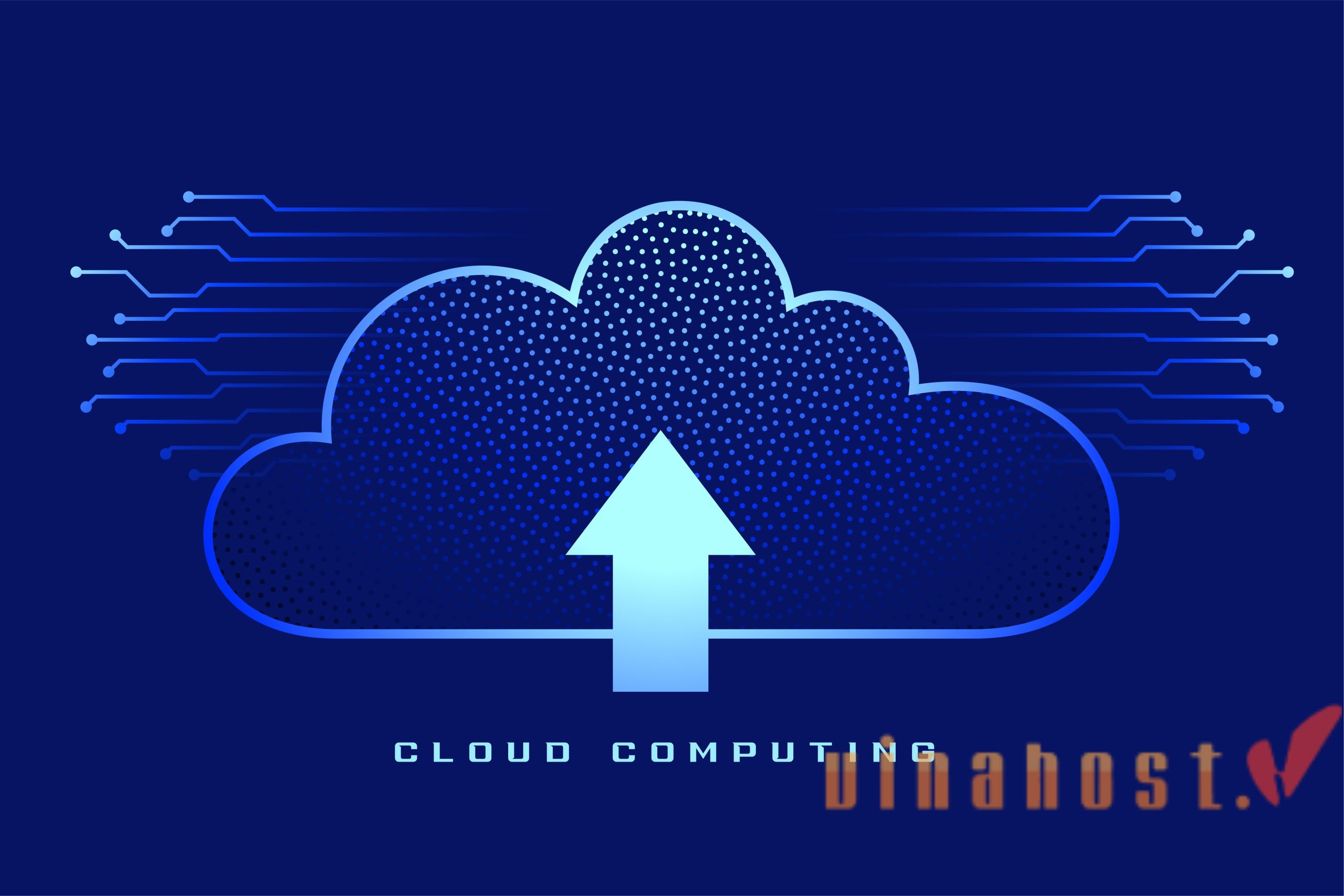
Yes, a Virtual Dedicated Server (VDS) is generally more secure than a shared hosting account. Here’s why:
Isolation:
- VDS: Each VDS virtual dedicated server is isolated from other virtual servers on the same physical machine. This isolation reduces the risk of one user’s activities affecting others and prevents vulnerabilities in one VDS from impacting others.
- Shared Hosting: In shared hosting, multiple users share the same physical server and resources. A security vulnerability in one account can potentially compromise others on the same server.
Dedicated resources:
- VDS: Resources (CPU, RAM, storage) are dedicated to your VDS virtual dedicated server, which minimizes the risk of performance degradation or security issues caused by other users on the same server.
- Shared Hosting: Resources are shared among multiple users, which can lead to performance issues and potential security risks if one user’s activities affect the server’s overall stability.
Control and customization:
- VDS: You have full control over the server environment, allowing you to configure security settings, install security software, and manage firewall rules according to your specific needs.
- Shared Hosting: You have limited control over server configurations and security settings, as these are managed by the hosting provider. This can restrict your ability to implement custom security measures.
Custom security measures:
- VDS: You can implement custom security measures, such as intrusion detection systems (IDS), regular security updates, and tailored access controls, to enhance server security.
- Shared Hosting: Security measures are generally managed by the hosting provider and may not be as customizable or comprehensive as what you can implement on a VDS virtual dedicated server.
Access control:
- VDS: You have full administrative access to your VDS, allowing you to set up and manage user accounts, permissions, and access controls more effectively.
- Shared Hosting: Access is typically limited to a control panel provided by the host, which may not offer as much granularity in managing user permissions and access.
Security updates and patching:
- VDS: You are responsible for applying security updates and patches to your VDS virtual dedicated server, giving you control over the update schedule and ensuring timely application of security fixes.
- Shared Hosting: Security updates and patches are managed by the hosting provider, which can sometimes lead to delays or inconsistencies in applying updates.
Custom software and configurations:
- VDS: You can install and configure security software and tools tailored to your specific requirements, enhancing overall security.
- Shared Hosting: You are restricted to the software and configurations provided by the hosting provider, which may not be as customizable or secure.
Also read: What is the difference between VPS and Shared Hosting
7.5. Can I manage my VDS myself?
Yes, you can typically manage your Virtual Dedicated Server (VDS) yourself. This level of control is one of the key advantages of VDS compared to shared hosting.
Why you should manage your VDS yourself:
- Customization: You have full control over the server’s configuration, allowing you to tailor it to your specific needs.
- Cost-efficiency: Managing your VDS virtual dedicated server yourself can save you money on managed services.
- Control: You have complete control over your server’s environment, ensuring that it’s configured and maintained according to your preferences.
- Learning opportunity: Managing a VDS can be a great way to learn about server administration and system management.
Why you might not want to manage your VDS yourself:
- Time-consuming: Managing a VDS virtual dedicated server can be time-consuming, especially if you’re not familiar with server administration.
- Complexity: Server management can be complex, and it requires technical knowledge and skills.
- Risk: If you’re not experienced with server management, there’s a risk of misconfiguration or security breaches.
If you’re not comfortable managing your VDS yourself, many VDS providers offer managed services. This means they will handle tasks such as server maintenance, security updates, and troubleshooting, while you can focus on your websites or applications. The level of managed services available can vary depending on the provider, so it’s important to check what’s included in your plan.
Ultimately, the decision of whether to manage your VDS virtual dedicated server yourself or use managed services depends on your technical expertise, time constraints, and budget. If you’re confident in your abilities and have the time to dedicate to server management, then managing your VDS yourself can be a rewarding experience. However, if you prefer to focus on your core business and don’t have the technical expertise or time to manage the server, managed services can be a good option.
Also read: The difference between Managed VPS and Unmanaged VPS
8. Conclusion
We hope this article helps you understand what is a Virtual Dedicated Server. A Virtual Dedicated Server is an excellent choice for those seeking a blend of dedicated performance and flexibility. Its ability to offer isolated, dedicated resources within a virtualized environment makes it a versatile and efficient solution for various hosting needs, whether for personal projects, small to medium-sized businesses, or specialized applications.
If you want to register free Virtual Dedicated Server, please email to cskh@vinahost.vn for help. Find out more articles at our Blog and don’t hesitate to contact us for support, you can refer to the Server in Vietnam service:
- Email: support@vinahost.vn
- Hotline: 1900 6046
- Livechat: https://livechat.vinahost.vn/
Read more:
[UPDATED] TOP 20 Best VPS Control Panel Free & Paid
What is Thailand VPS Hosting? Top 8 benefits of Thailand VPS Hosting









